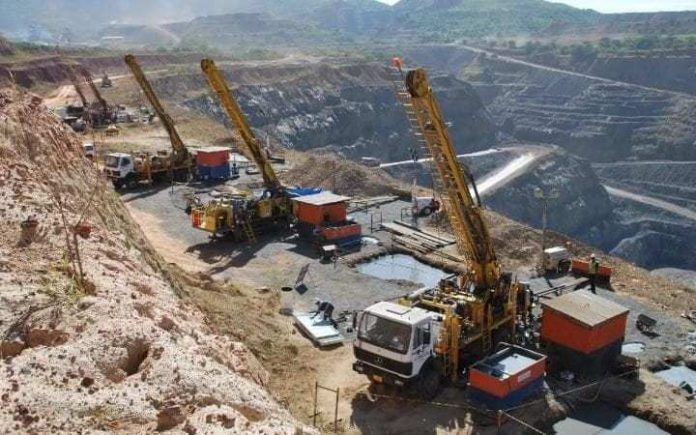With new gas reserves discovered by Mari Petroleum in Bannu, and another copper and gold mine in Waziristan as claimed by Dr. Samar Mubarakmand, Pakistan is all set in making a headway in the mining industry. Unfortunately, despite being rich in resources, Pakistan may not have the financial or the scientific resources to reap the benefits of these discoveries by itself.
For this very purpose, Pakistan hosted its first ever mineral summit “PAKISTAN MINERALS SUMMIT – DUST TO DEVELOPMENT: INVESTMENT OPPORTUNITIES IN PAKISTAN”, on August 01, 2023. The event was aimed at paving the way towards unlocking the vast mineral potential of Pakistan.
Prime Minister Muhammad Shehbaz Sharif served as the chief guest, with Chief of the Army Staff General Syed Asim Munir gracing the event as the guest of honour. The summit was a collaborative effort between the Special Investment Facilitation Council (SIFC), a council jointly set by Pakistan’s civil and military leadership, and Barrick Gold Corporation. The Ministry of Petroleum provided additional facilitation for the event.
The gathering attracted a diverse range of attendees including federal and provincial ministers, foreign dignitaries, investors, and technical experts. The summit assembled industry leaders, specialists, and key stakeholders from both public and private sectors onto a common platform.
The comprehensive, day-long agenda included four sessions, four solo speeches, panel discussions, a keynote address, along with special messages from the Prime Minister and the Army Chief.
Prime Minister Shehbaz Sharif, in his address, lauded the resilience and hope of the Pakistani people. He saw initiatives like the summit as a means of transforming that hope into tangible reality. The mineral wealth of Pakistan, he emphasised, presents an incredible opportunity for the country to leave its mark on the global economic stage. He also praised the SIFC as a pivotal mechanism to leverage opportunities for Foreign Direct Investment in Pakistan.
The Army Chief, General Syed Asim Munir, shared his vision for the evolving mining landscape in Pakistan. He underscored the influential role of the SIFC as a catalyst for this change. He further remarked, “Difficult times test a nation’s resilience. Through unity, determination, and positivity, we will surmount current challenges.”
Some of the key panellists of the event included the Assistant Deputy Minister for mining enablement of Saudi Arabia, Mr Abdul Rehman Belushi, the Deputy Energy Minister of Azerbaijan, Kamal Abbasov, CEO Barrick Gold (a stakeholder in the Reko Diq project) Mr. Mark Bristow, Managing Director Jefferies- Mr. Oliver Dachshell, The Energy and Petroleum Minister, The Finance Minister and the Minister of Planning and Development of Pakistan.
The event also brought to the table some of the leading businessmen of Pakistan like Muhammad Ali Tabba (Lucky Group), Arif Habib ( Arif Habib Corporation) Ghias Khan (Engro Corporation) and Amir Paracha (CEO Unilever and President Overseas Investors Chamber of Commerce).
Talking to the event, the Planning minister, Prof. Ahsan Iqbal stated that despite political and financial challenges, the current government has been able to “stabilise the ship” and Pakistan is now open for business.





Mujay 1 aisi jagah malom ha jaha billions Dollars Kay minerals diamonds bahut Kemti gems stone majod ha.
Tell everyone so that everyone becomes rich in Pakistan
It’s abroad and someone will bring this loot back and change our situation in days when we are back in power.
You are in for a real treat with this! This is without a doubt the most incredible piece of writing I’ve ever read. Because of you, it is turning out to be a much better day.
Being a Geosynthetic Material Manufacturers GeoTech Lining Corporation really appreciates The Army Chief, General Syed Asim Munir’s vision for the evolving mining landscape in Pakistan.